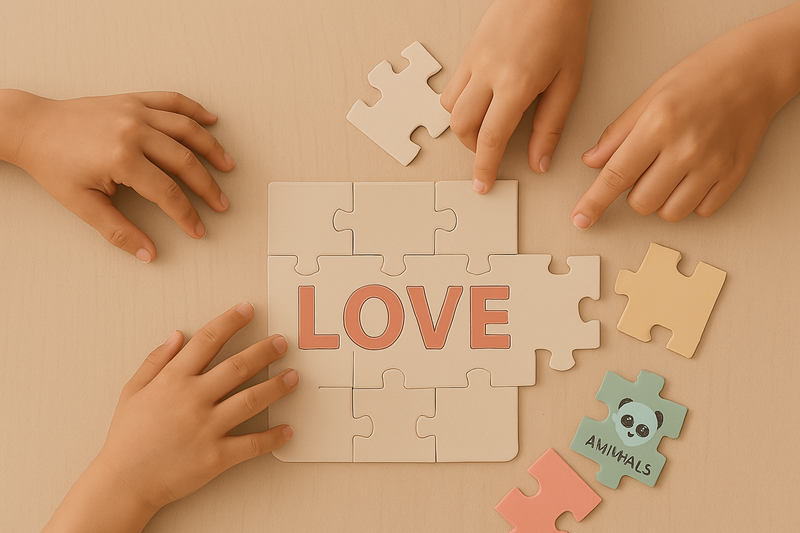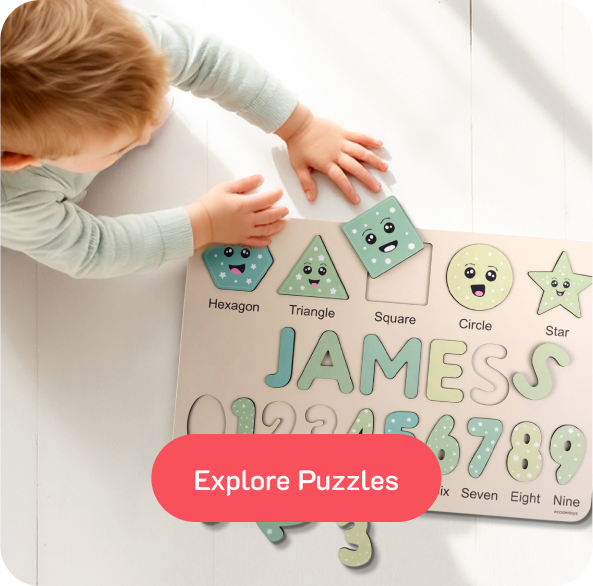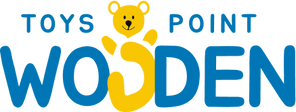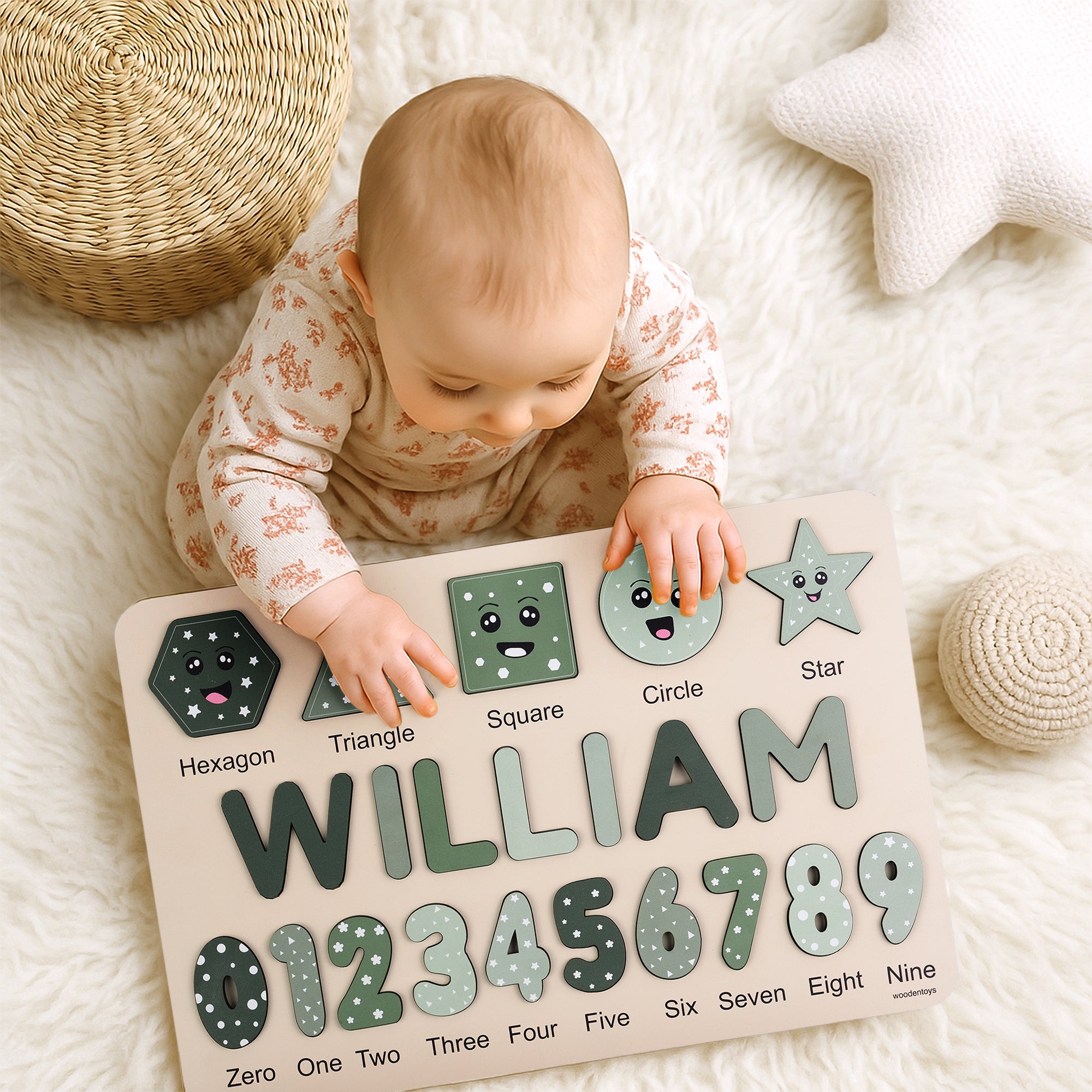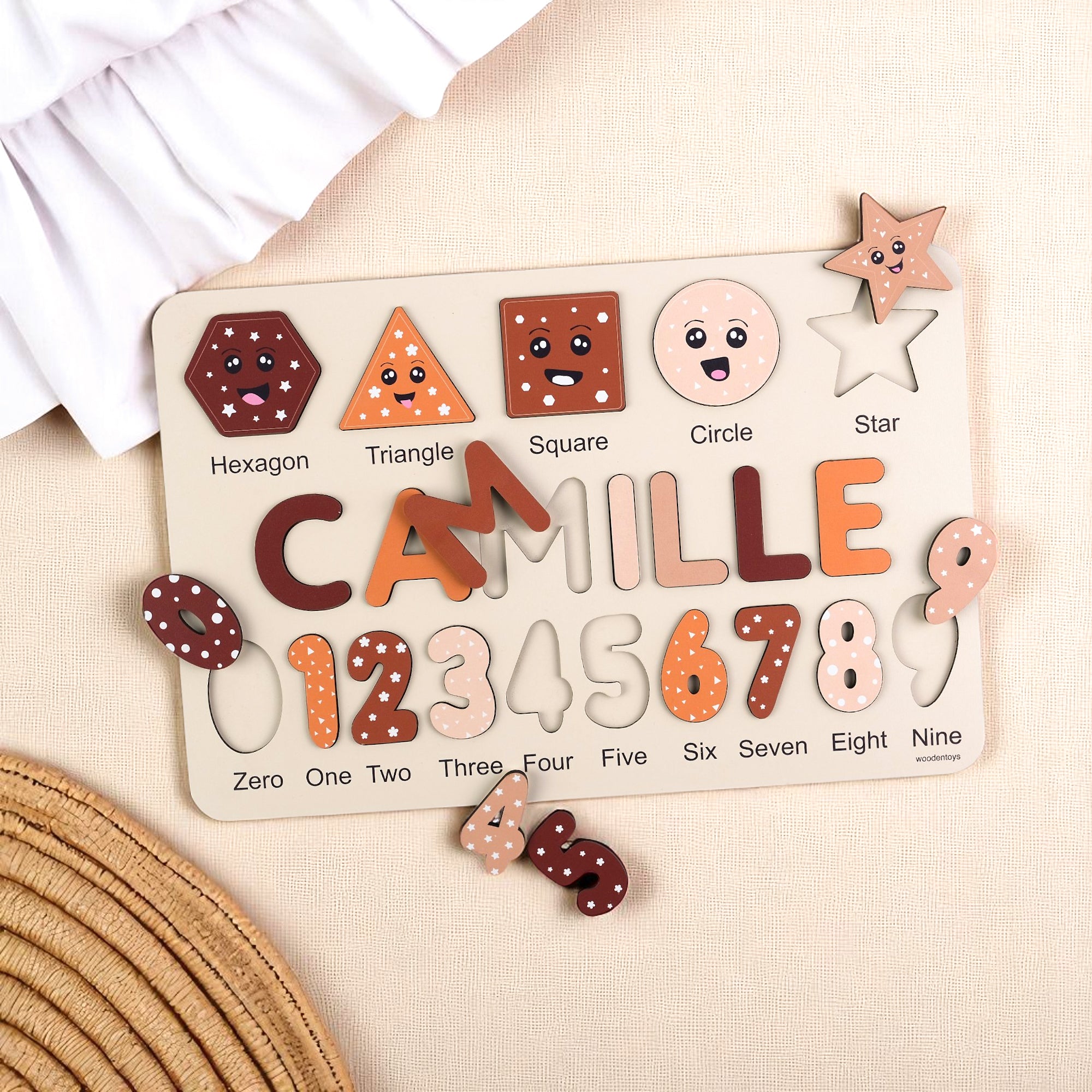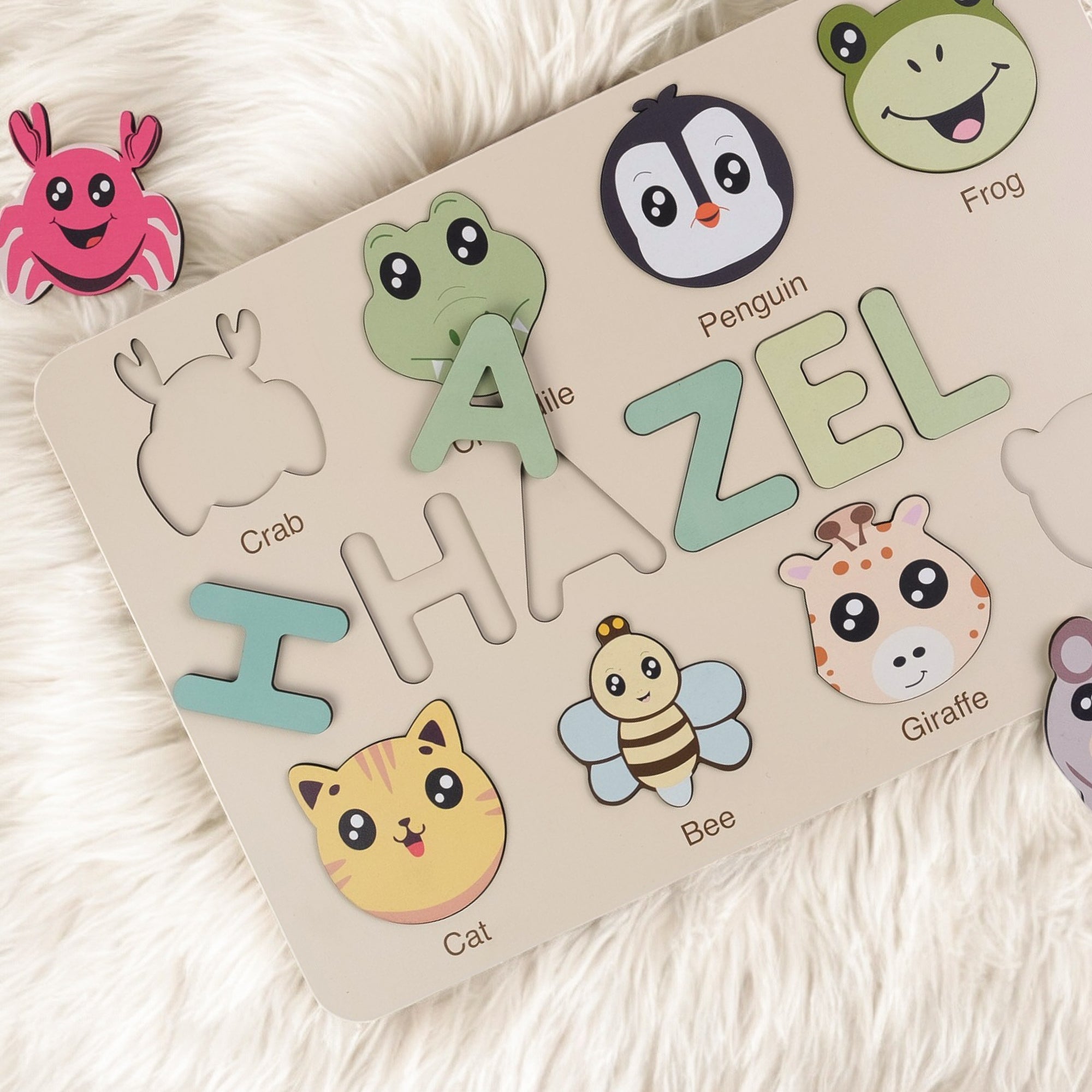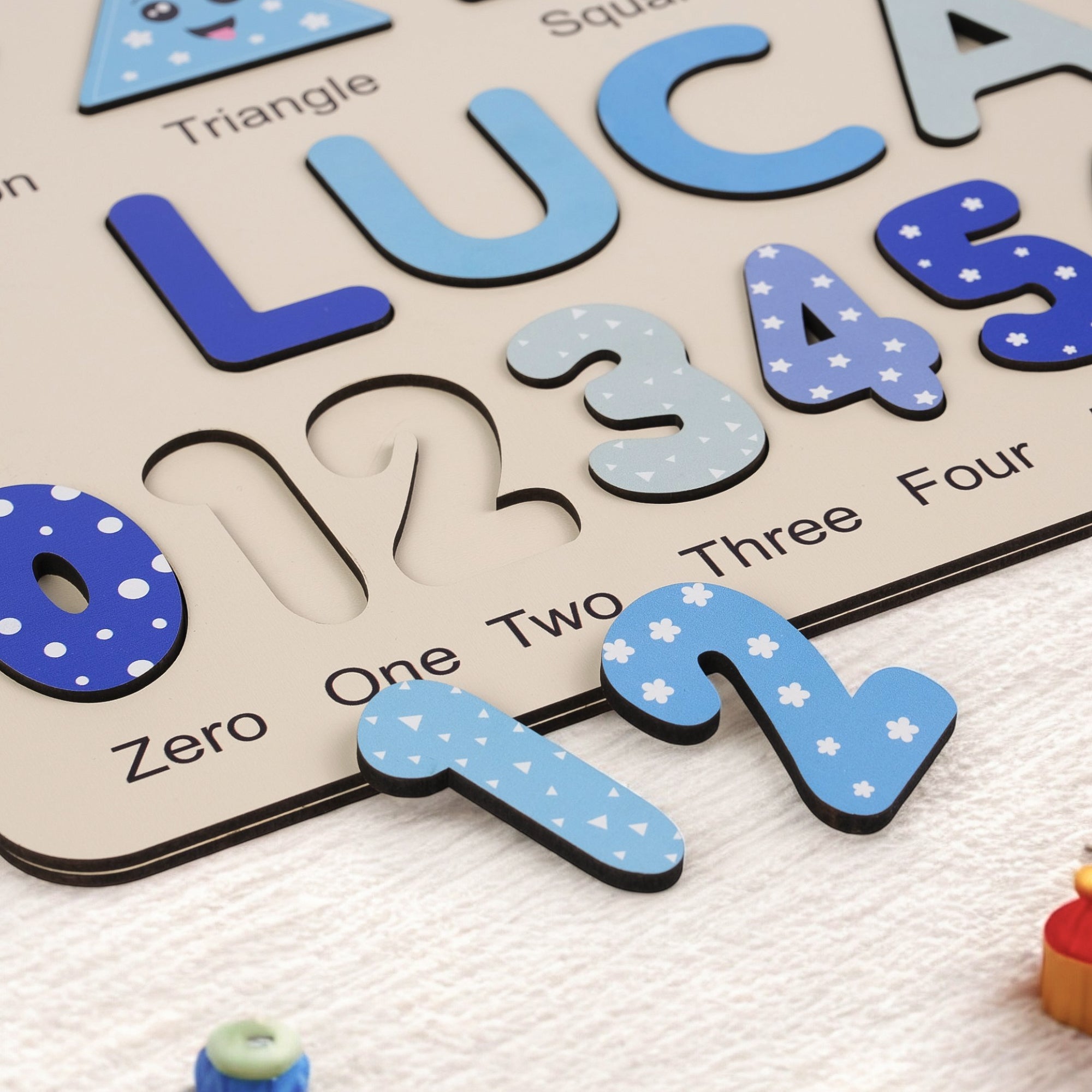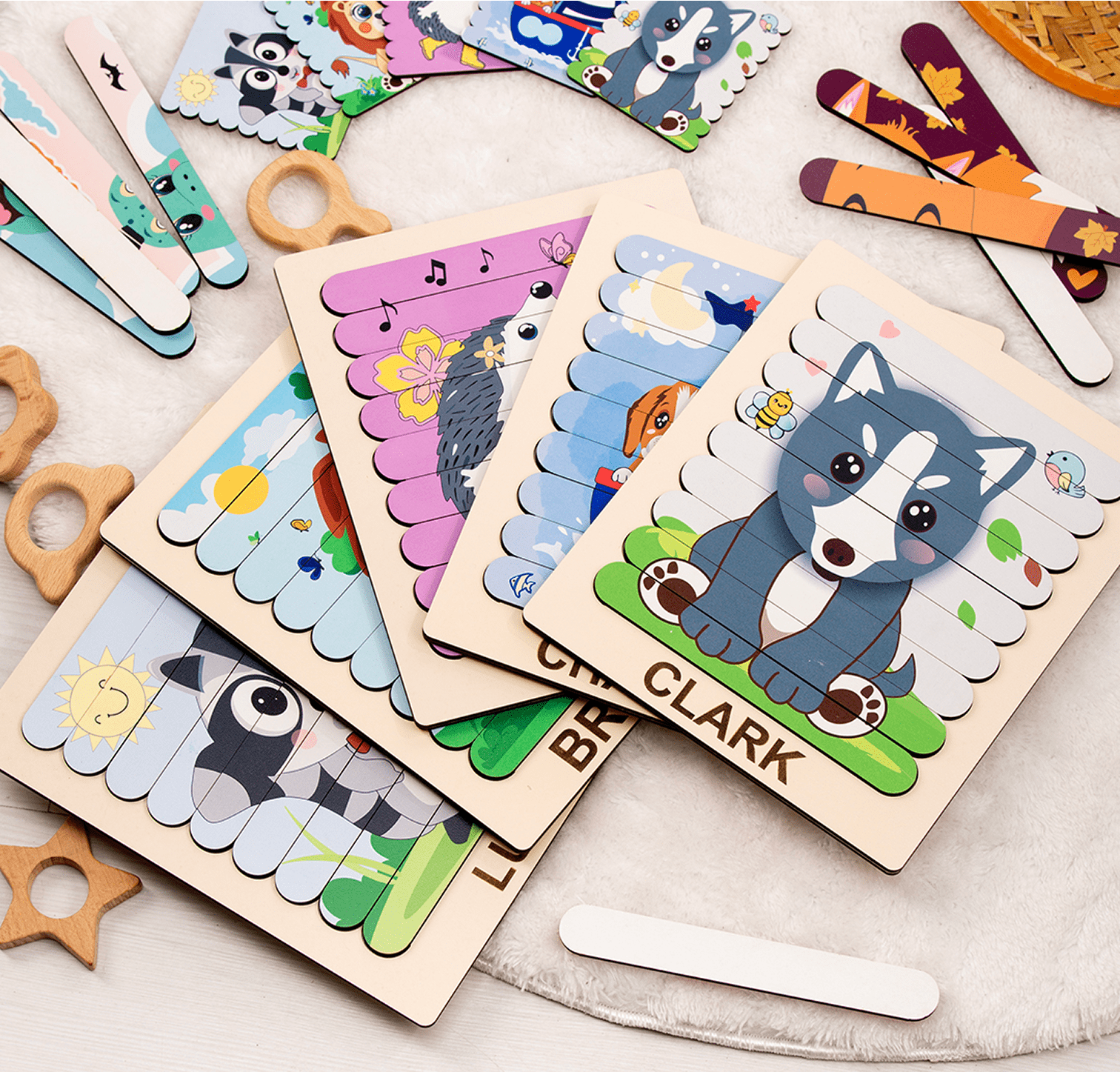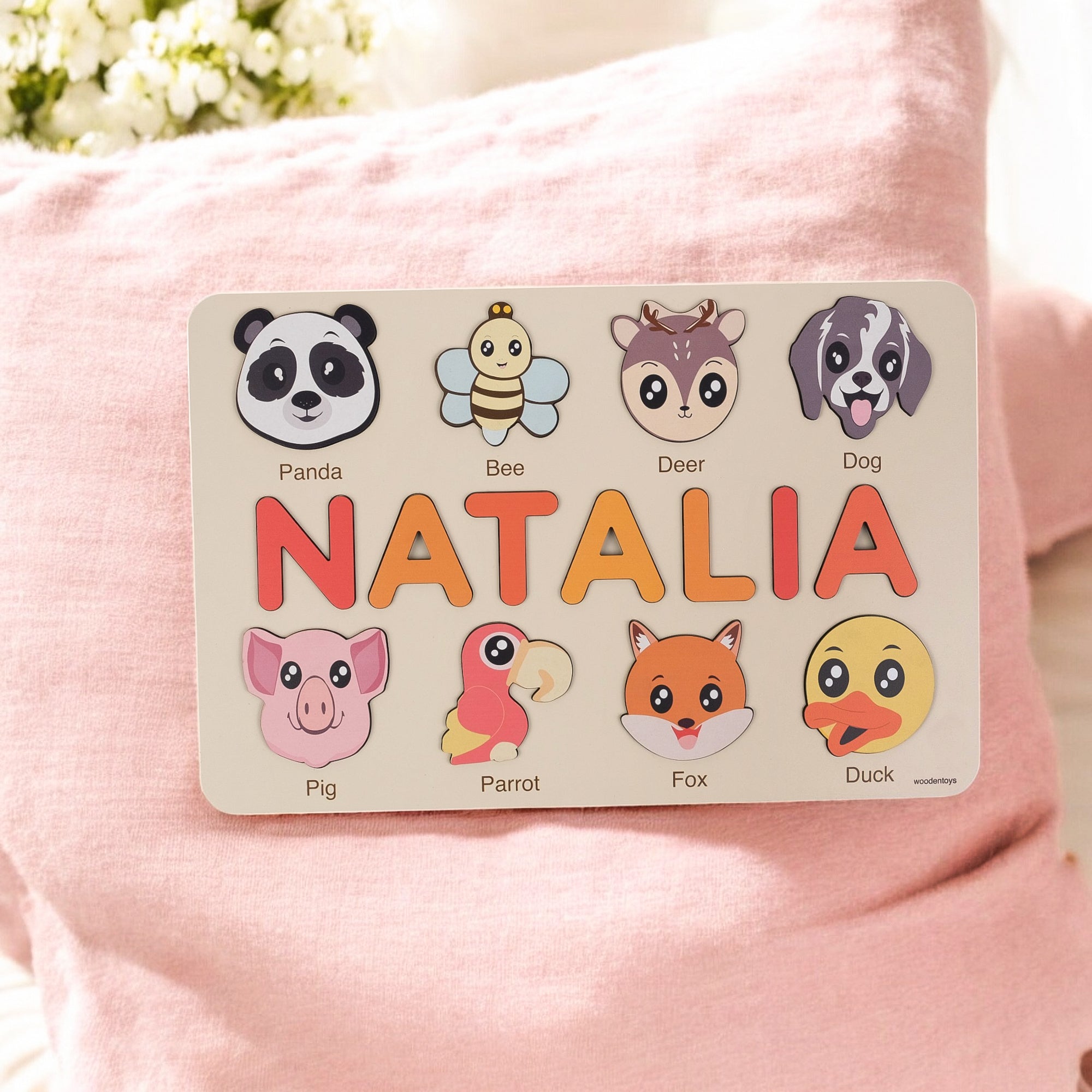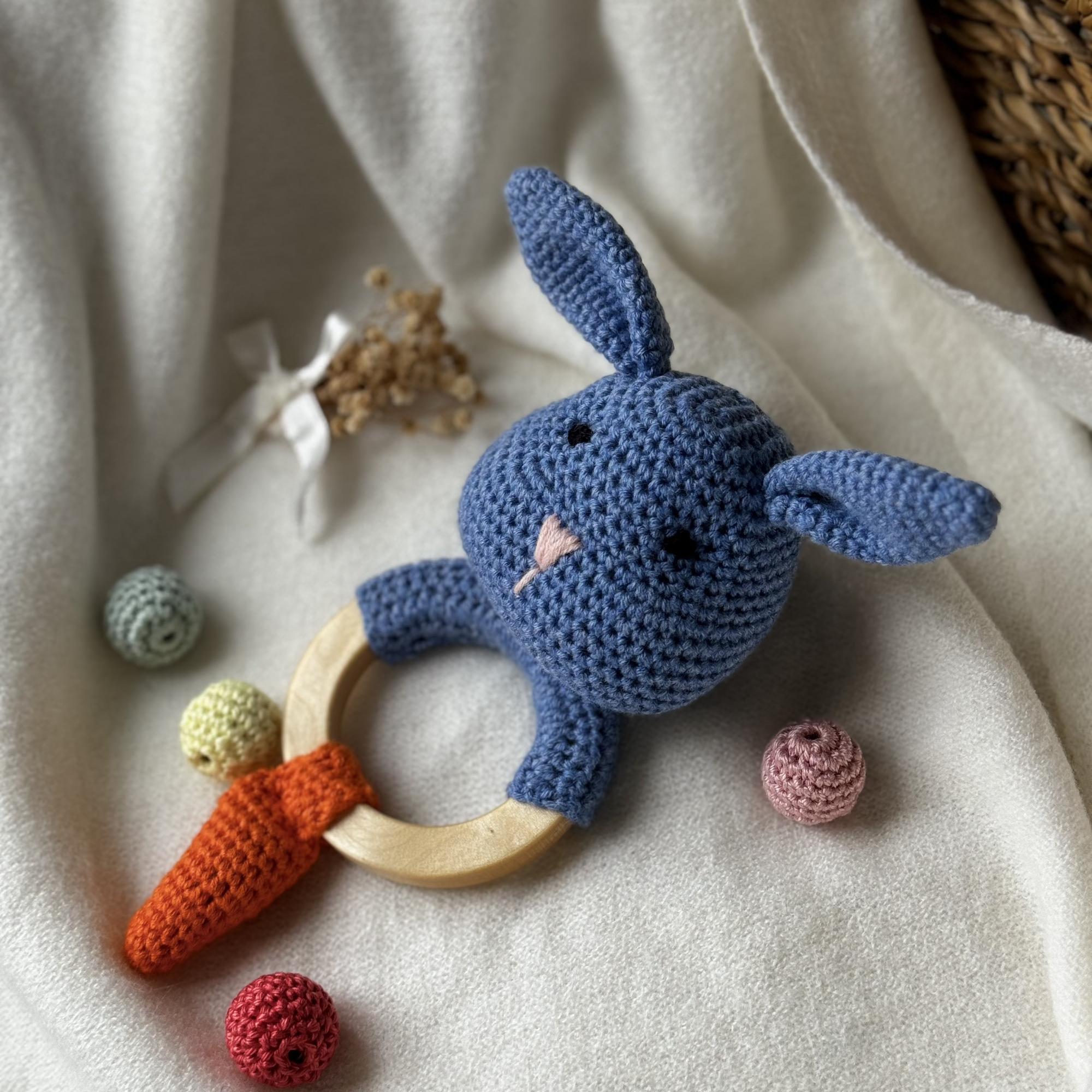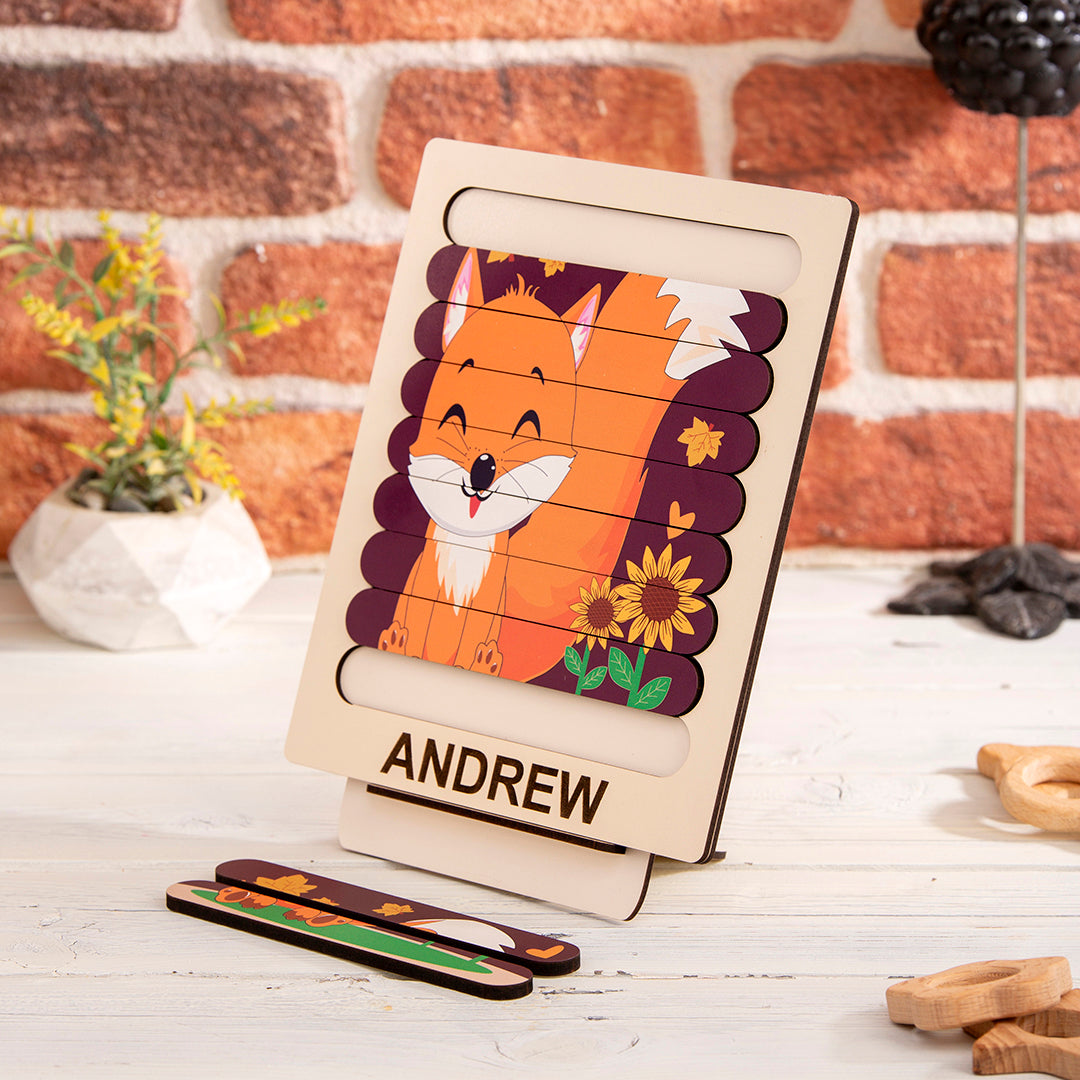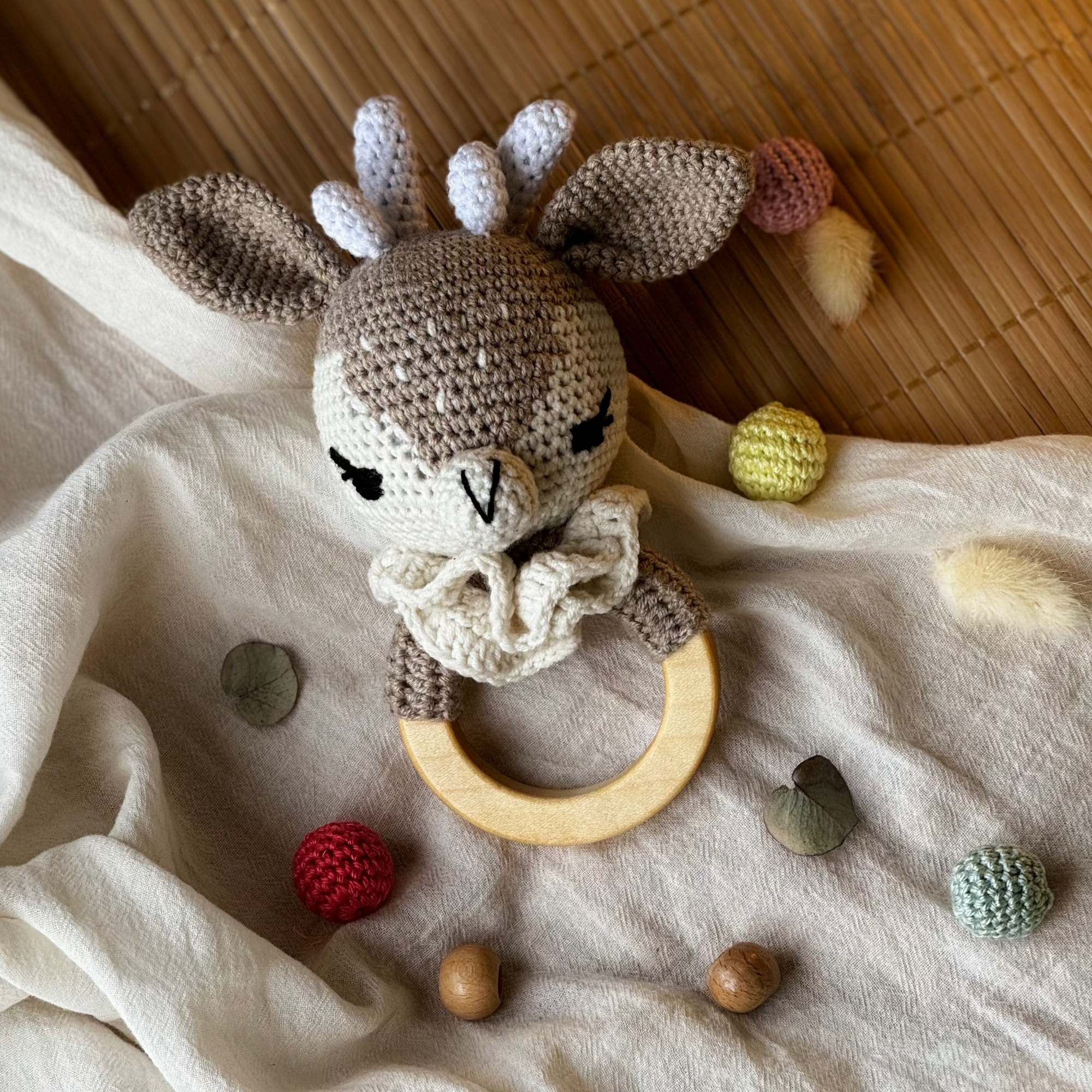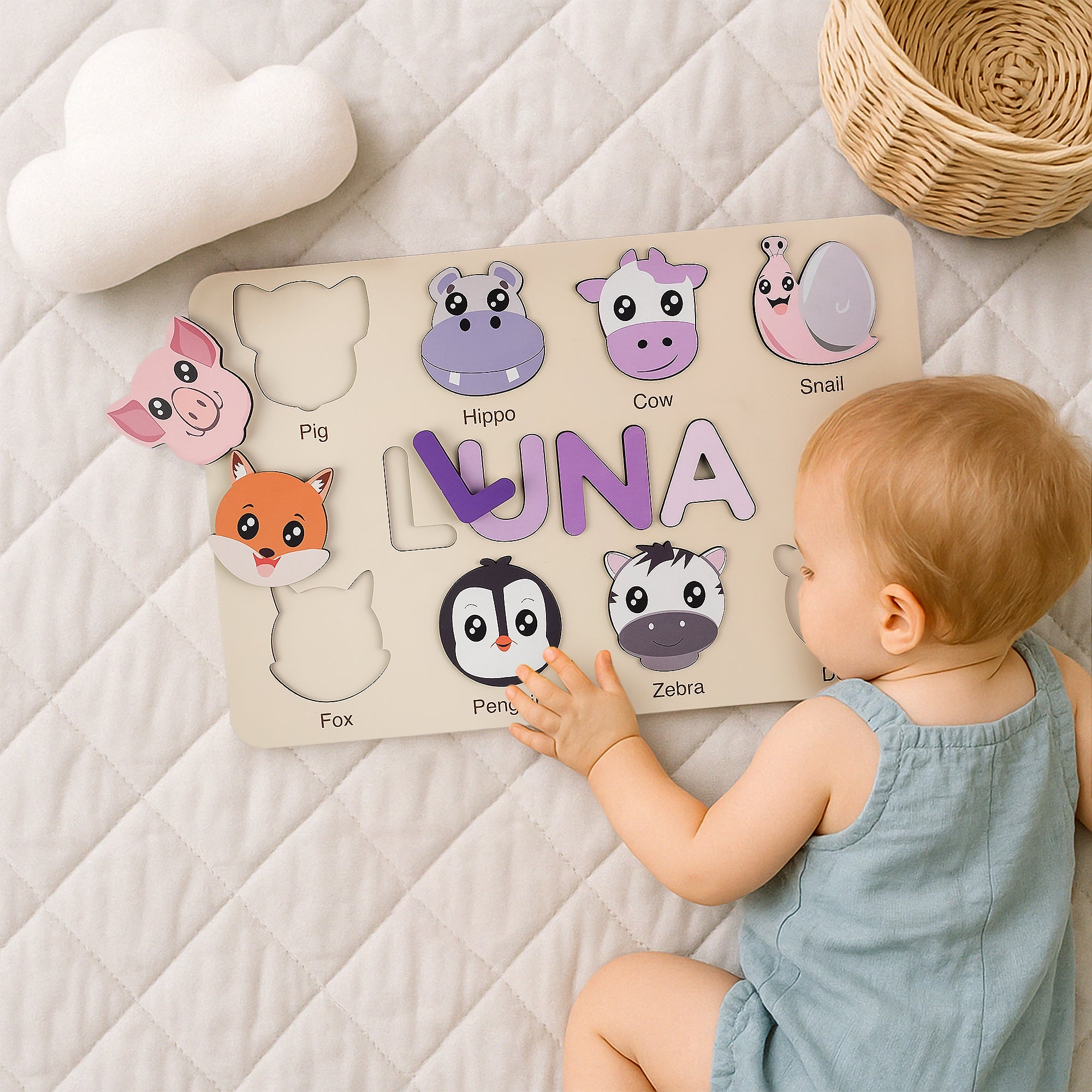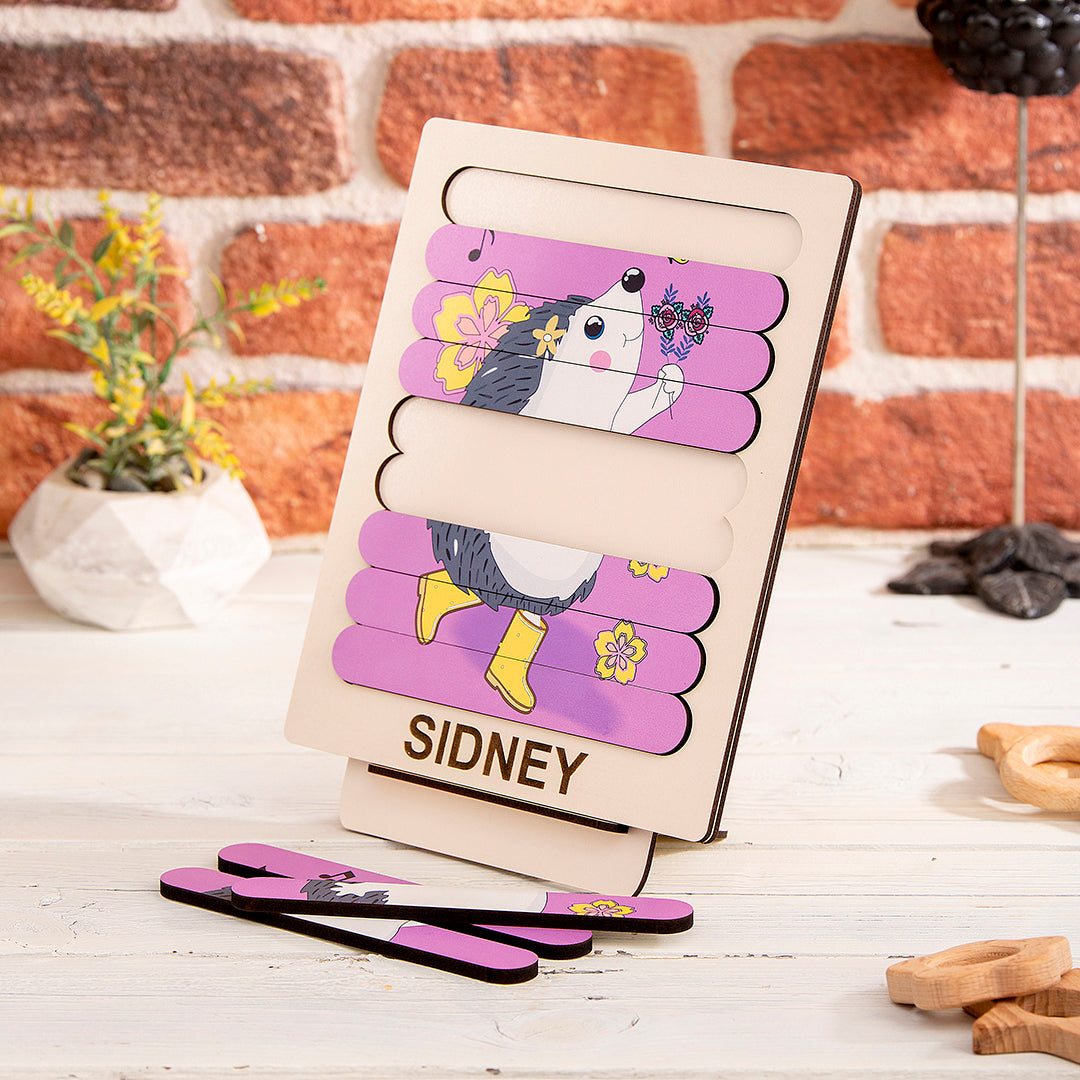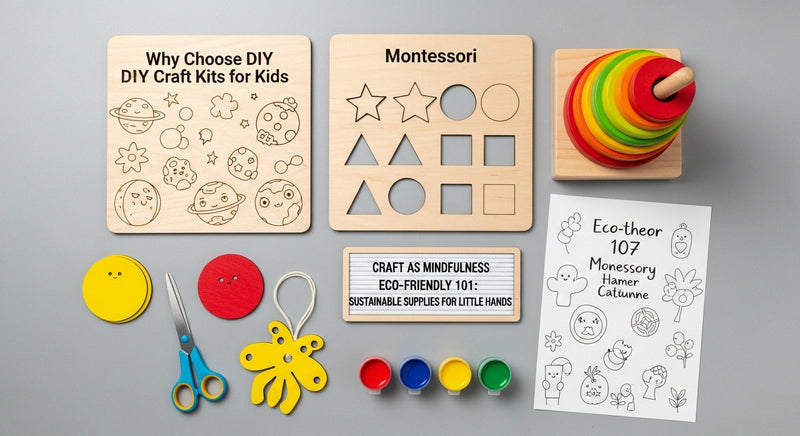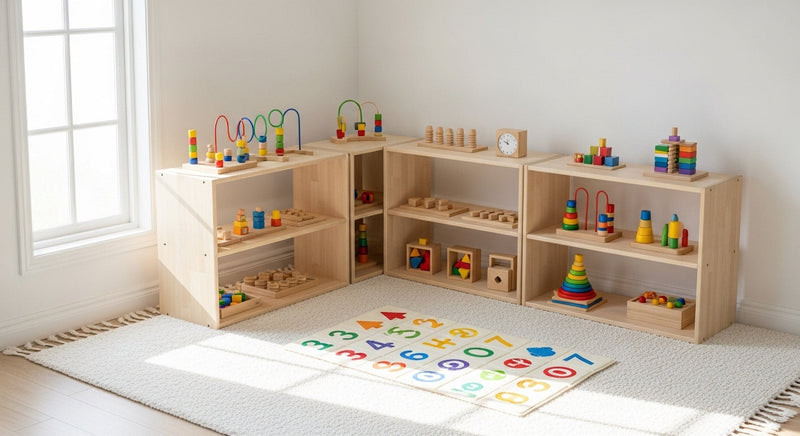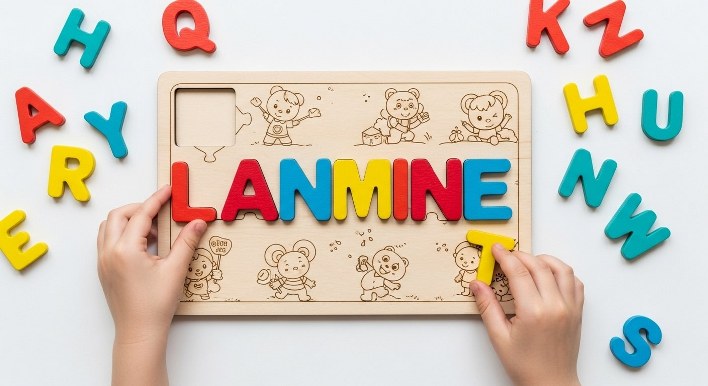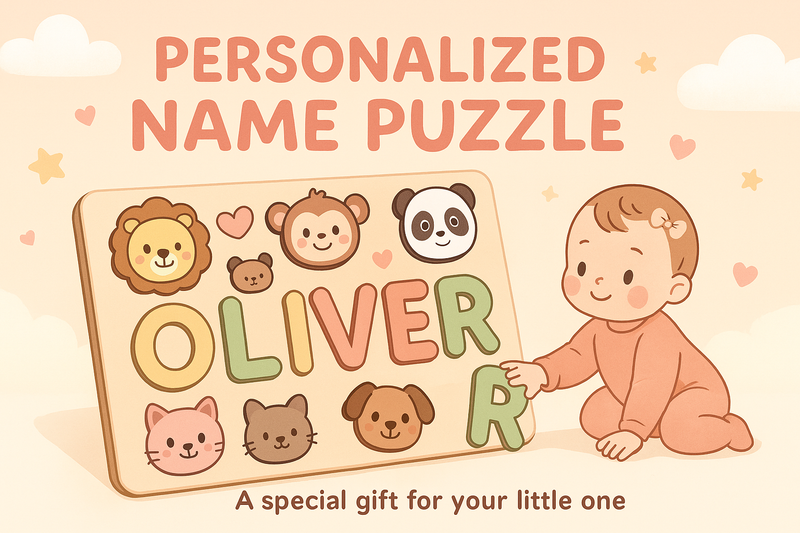Name Puzzles: Your Complete Guide for Parents and Educators in the USA
Name puzzles have become a beloved educational tool for young children across the United States. This guide is designed to help parents and educators understand what name puzzles are, how they support early childhood development, and how to choose the best options for both home and classroom use. Looking to enhance learning or searching for the perfect personalized gift? Name puzzles offer a hands-on, meaningful way to engage kids in literacy and play.
Name Puzzles: What They Are and Why They’re Loved
Name puzzles are personalized wooden name puzzles or foam puzzles that feature a child’s name, with each letter designed as a removable piece. These puzzles are loved by parents, teachers, and toddlers because they combine hands-on fun with essential early learning. A custom name puzzle isn't just a toy but a learning tool that supports letter recognition, fine motor development, and gives children a strong sense of identity and ownership from the start.
What makes name puzzles so popular is their simplicity and effectiveness. Kids are naturally drawn to their own names, and these puzzles turn that curiosity into a playful learning moment. The experience of fitting each name puzzle piece into place keeps little hands busy and minds engaged- and that without screens or complicated instructions. At home, parents use name puzzles for kids to encourage independent learning, while educators rely on them to build routine, boost confidence, and reinforce early literacy in the classroom.
How Name Puzzles Boost Child Development
Name puzzles boost child development through several essential areas: building name recognition skills, enhancing fine motor abilities, and fostering creativity and confidence. These personalized puzzles aren’t just charming keepsakes but also powerful learning tools that play a role in cognitive and emotional development. When children engage with name puzzles, they interact with letters in an interactive way, forming early connections to language, spelling, and identity. The process of physically picking up and placing letters helps reinforce recognition and memory, especially when those letters spell something as meaningful as their own name. At the same time, using name puzzles encourages fine motor skill development, which lays the groundwork for writing, drawing, and everyday coordination.
Beyond academics, name puzzles contribute to a child’s self-esteem and sense of individuality. Seeing their name represented in a physical object fosters ownership and pride, which can encourage kids to take more initiative in their learning. Using them during quiet time at home or as part of a classroom literacy station, name puzzles promote a joyful, hands-on approach to early childhood education.
Building Name Recognition Skills
Building name recognition skills is one of the primary developmental benefits of using name puzzles. When children repeatedly see, touch, and place the letters in their own name, they start to internalize how those letters look and sound. This multisensory experience makes name puzzles an effective first step toward early literacy. Instead of passive learning, kids actively engage with letters, helping to reinforce visual identification, letter sequencing, and left-to-right reading habits in a way that feels like play. Over time, this interaction lays a strong foundation for recognizing other words and understanding the structure of written language.
Enhancing Fine Motor Abilities
Enhancing fine motor abilities through name puzzles happens naturally as children grasp and maneuver the individual letter pieces. These small, repetitive movements strengthen the muscles in their hands and fingers that are essential for writing and using utensils. Each time a child fits a letter into its slot, they’re practicing hand-eye coordination and spatial awareness. For younger toddlers, even picking up chunky puzzle pieces is a developmentally rich activity that supports the refinement of everyday motor skills.
Fostering Creativity and Confidence
Fostering creativity and confidence is another powerful aspect of name puzzles that goes beyond basic learning. With their bright colors, personalized letters, and hands-on design, custom name puzzles invite children to explore in open-ended, imaginative ways. They might arrange the letters into new shapes, sort them by color, or invent their own games using the puzzle pieces. Some children use the letters as characters in storytelling or as building blocks in pretend play, blending learning with fun in a way that’s deeply personal and self-directed. This creative freedom encourages kids to experiment, take risks, and trust their own ideas- key elements in both play and problem-solving. Unlike activities with fixed outcomes, a name puzzle for kids offers space to approach learning at their own pace and in their own style. And when a child completes their wooden name puzzle, even for the first time, it becomes a moment of real achievement. That feeling of success- seeing their name completed with their own hands- builds a lasting sense of confidence. Over time, that confidence helps children approach new challenges with resilience, curiosity, and pride in what they can do.
Choosing the Best Name Puzzle for Your Child
Choosing the best name puzzle for your child depends on different factors, including age suitability, material safety, and personalization. Since not all name puzzles are created equal, it’s worth taking a moment to consider what will truly engage your child and meet their developmental needs. From toddler-safe designs to beautifully crafted keepsakes, the right name puzzle should offer a blend of fun, function, and safety.
Age-Appropriate Options
Age-appropriate name puzzle options vary depending on a child’s developmental stage. For babies and young toddlers (around 12–24 months), puzzles with large, chunky letters and rounded edges are ideal. These are easier to grip and reduce any risk of choking. As children grow, you can introduce more detailed puzzles- perhaps ones with thinner pieces or added complexity, like numbers, colors, or shapes- to keep them engaged and challenged. For preschoolers and early elementary children, look for name puzzles that go beyond letter matching and begin to incorporate spelling skills. Some puzzles even add a magnetic or dry-erase component to encourage word building. Choosing a name puzzle that grows with your child keeps learning fresh and developmentally aligned.
Material Safety and Durability
Material safety and durability should be top priorities when selecting a name puzzle for your child. The best name puzzles are made from non-toxic, BPA-free, and child-safe materials- usually sustainably sourced wood or sturdy, food-grade foam. Wood is often the most durable and long-lasting option, especially when sealed with water-based, lead-free finishes. It holds up well to repeated use and often becomes a treasured item that’s saved as a keepsake. Avoid puzzles that have small, detachable parts or paints that chip easily. Look for products tested for safety compliance in the U.S.. A high-quality name puzzle should withstand daily handling, drool, and the occasional tumble without losing its shape or color.
Customization for Unique Names
Customization for unique names is one of the standout benefits of name puzzles. If your child has a rare name, alternative spelling, or cultural characters in their name, a custom name puzzle ensures they feel seen and celebrated. Many small businesses now offer personalized options where you can choose the font, color scheme, size, and even include special characters or hyphens. This level of customization makes name puzzles especially meaningful. Children with non-mainstream names often don’t see their name on typical store-bought toys or gifts. A personalized name puzzle becomes a confidence booster and a way for children to take pride in their identity from an early age.
Exploring Different Types of Name Puzzles
The different types of name puzzles available today make it easy to find one that suits your child’s age, personality, and learning style. From simple wooden name puzzles to advanced multi-layer designs, there's a wide variety to choose from. The most common and loved version is the personalized wooden name puzzle, where each letter of the child’s name is crafted as an individual piece. These wooden name puzzles are durable, tactile, and often double as nursery décor when not in use. Beyond the classic design, there are name puzzles for babies with extra-large letters, custom name puzzles with bright colors and themes, and even puzzle name boards that include shapes, animals, or numbers to enhance engagement. Some brands offer puzzle piece names in different textures to support sensory play, while others introduce a layered approach where children match both the letter and its corresponding shadow or color space. No matter if you’re looking for a baby name puzzle or a wood name puzzle with educational add-ons, the type you choose can greatly influence how your child plays and learns.
Fun Ways to Use Name Puzzles at Home
There are so many fun ways to use name puzzles at home beyond traditional play. A name puzzle for kids can become a tool for morning routines, learning activities, or even quiet-time focus. For toddlers, placing the name puzzle pieces into the board helps them practice patience and attention. You can also turn puzzle time into a game and hide the letters around the room for a name scavenger hunt. Parents often use custom wooden name puzzles as part of birthday celebrations or holiday gift-giving. Some even hang them on walls as room décor. For siblings, having puzzle names made for each child creates a sense of ownership and personal space. With just a little creativity, a children's name puzzle becomes more than a toy but a part of the family rhythm.
Name Puzzles in Classrooms and Preschools
In classrooms and preschools, name puzzles serve as a learning tool and a confidence-builder. Teachers often use custom name puzzles during circle time, arrival routines, or literacy stations. When children find and complete their own puzzle name, they not only practice letter recognition but also feel welcomed and acknowledged. It’s an effective way to support identity and belonging in early education environments. Name puzzles wooden varieties are especially popular in Montessori and Reggio Emilia classrooms due to their natural texture and durability. Educators appreciate how a personalized name puzzle can double as a quiet activity while also reinforcing spelling and motor skills. Plus, in group settings, using custom wooden name puzzles encourages cooperative play- children help each other solve puzzles, strengthening both social and academic development.
Gift Ideas: Personalized Name Puzzles for Any Occasion
A personalized name puzzle makes a thoughtful and lasting gift for a wide range of occasions- a baby shower, first birthday, holiday celebration, or even a preschool graduation. A custom name puzzle is both meaningful and practical. Unlike many toys that are quickly forgotten, wooden name puzzles often become keepsakes displayed on shelves or remembered in photos for many years. For newborns, a baby name puzzle in soft pastel colors or natural wood tones makes a beautiful nursery decoration and a future learning tool. For toddlers, brightly colored name puzzles for kids add play value and excitement, especially when customized with their favorite colors, themes, or even additional shapes. Some gift givers also choose to add a message on the back of the custom wooden name puzzle, making it even more personal and meaningful. These small details turn a simple toy into a family treasure. Plus, personalized gifts like these show thoughtfulness and care, making them perfect for moments when you want to give something truly unique. If you’re searching for a gift that’s educational, long-lasting, and full of heart, name puzzles tick every box.
Real Results: What Parents and Educators Say
The real results of using name puzzles come through loud and clear in the experiences shared by parents and educators. Many families say that name puzzles quickly become a favorite in their child’s daily routine. Parents often notice their child learning to spell their name earlier than expected, and building confidence each time they complete the puzzle on their own. Some even say it was the first toy their child truly bonded with. In preschools, teachers highlight how name puzzles help with morning transitions and self-directed learning. Educators share how a classroom set of name puzzles helped children recognize not just their own names but those of their classmates, boosting social awareness and language skills. The consistent feedback? At home or in school, personalized wooden name puzzles create measurable growth in fine motor skills, letter recognition, and emotional development.
Frequently Asked Questions About Name Puzzles
What is a name puzzle?
A name puzzle is a custom puzzle where each letter of a child’s name is a separate, removable piece. Often made from wood or durable foam, these puzzles help children learn to recognize and spell their own names. A personalized wooden name puzzle also doubles as a keepsake, making it both educational and sentimental.
How do name puzzles help with child development?
Name puzzles help with child development by supporting fine motor skills, cognitive growth, and early literacy. As children manipulate the name puzzle pieces, they build coordination, hand strength, and visual perception. At the same time, seeing and touching the letters of their name boosts memory, sound awareness, and self-confidence.
What age range are name puzzles suitable for?
Name puzzles for kids are generally suitable for ages 1 to 5. Name puzzles for babies often feature larger, chunkier letters that are easier to grasp, while older children may enjoy more detailed or multi-feature puzzles that challenge their spelling or sorting abilities. Always check the manufacturer's recommended age range for safety and engagement.
Can I personalize a name puzzle with my child’s name?
Yes, you can personalize a name puzzle with your child’s name. That’s what makes a custom name puzzle so special. Many makers allow you to choose not only the name, but also colors, fonts, and sometimes even extra elements like shapes or messages on the back. It’s one of the main reasons custom wooden name puzzles are so popular as gifts.
What materials are name puzzles made from?
Most high-quality wooden name puzzles are made from sustainably sourced wood, often sealed with non-toxic, child-safe finishes. Some alternatives use foam or plastic for added flexibility or color options. A good name wooden puzzle should be free of small parts, sharp edges, and any harmful chemicals- especially if it's a baby name puzzle.
How can I use a name puzzle in a classroom setting?
In a classroom setting, name puzzles can be used during arrival routines, literacy centers, or as independent quiet-time activities. Many educators use custom name puzzles to help children recognize their own names and those of their peers. They also serve as helpful tools for transitions, sign-in activities, or reinforcing daily structure.
Are name puzzles suitable for group activities?
Yes, name puzzles are suitable for group activities- especially in early childhood classrooms or playgroups. Children can work together to match letters, complete each other’s custom name puzzles, or even help one another learn names. This collaborative play encourages communication, teamwork, and social learning alongside literacy development.
Why Name Puzzles Are a Must-Have for Kids
Name puzzles are more than just toys but a smart, lasting investment in your child’s early development. A personalized name puzzle combines learning, creativity, and emotional growth into one simple activity that kids actually love. No matter if you’re using a wooden name puzzle at home or integrating name puzzles into a preschool classroom, the benefits are clear and far-reaching. From building early literacy to strengthening fine motor skills, fostering confidence to supporting identity, custom name puzzles check all the boxes for playful learning. Their personalized nature makes every child feel seen and special, while their hands-on design supports the kind of development that screens simply can’t match. With so many styles, themes, and age-appropriate options available, there’s truly a name puzzle for every child.
